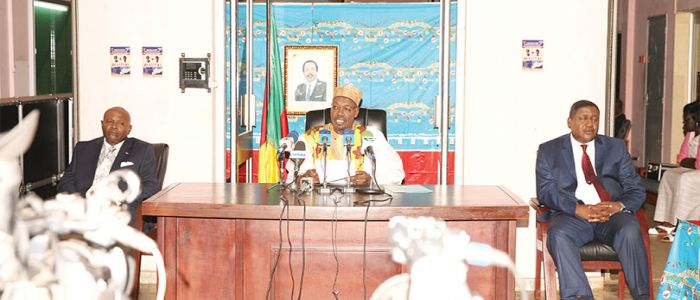
Below is an introductory statement of Communication Minister, Issa Tchiroma Bakary during a press conference yesterday in prelude to today’s World Press Freedom Day
Distinguished Journalists
Ladies and Gentlemen,
Cameroon, will together with the international community, celebrate on May 3, 2017, the World Press Freedom Day.
I have to that effect invited you on this occasion to exchange with you on this fundamental freedom in our country.
The theme chosen for this year’s edition by the United Nations Educational, Scientific and Cultural Organization (UNESCO) is “Critical Minds for Critical Times: Media’s role in advancing peaceful, just and inclusive societies ».
The Government of Cameroon rightfully appreciates the relevance of this theme in as much as it enhances both the fundamental values of our nation and the conviction we have of the role which press freedom should play in asserting and perpetuating these values.
In fact, we have never relent from reiterating that press freedom should not be a decontextualized freedom, but rather that which should absolutely be in keeping with the foundational values of our national community, those of peace, unity, inclusion, collective well-being, solidarity and living together.
Meanwhile, regardless of its attachment to its values, it should be underscored that press freedom is a living reality in Cameroon.
With regard to one of its essential components, which is that of political pluralism, the current statistics are unequivocal: more than 600 newspapers in the print media, at least 200 sound broadcasting stations, and more than 30 television channels.
With regard to the editorial independence, it should be underscored that there is only one daily newspaper of general and political interest and a radio and television broadcasting corporation belonging to the public sector.
The vast majority of the media therefore define their editorial lines and animate their content without any State interference.
Moreover, the freedom of speech showcased by these media is enough evidence to justify the free environment prevailing in the Cameroonian media landscape, as well asthe Government's willingness to allow the press to express itself without any external constraint.
To date, no journalist practicing in Cameroon is deprived of his liberty by reason of the regular exercise of his profession.
Media houses and journalists are not in danger in Cameroon and there is no threat to the free conduct of their professional activities.
A few of these journalists have nevertheless found themselves in breach of justice in our country for reasons having nothing to do with the ethical and deontological norms of their profession.
I am mostly thinking of those who deliberately infringed the honor and dignity of individuals by defaming or others who are accused of threats to public security, national integrity, or being accomplice with terrorist activities.
For each of these cases, they were brought before the competent courts which ruled out in all freedom and all independency. For the others ongoing cases, the proceedings are going on normally in conformity with the laws of the land. Those who want to challenge these decisions have the rights that are recognized to anyone by these same laws and regulations. They are therefore allowed to make use of them.
With regard to the fight against terrorism in particular, journalists should be versed with the legal framework set up for this purpose in our country, which stipulates special provisions commensurate to the danger and the consequences it has on the life of the nation, the stability of institutions, social peace, the protection and preservation of property and persons, and the integrity of the national territory.
It is the responsibility of every journalist to realize that in such circumstances, the exercise of his profession is becoming more than ever subjected to higher level imperatives, and whose respect is imposed on in him particular and to citizens in general.
In the same way, situations of war such as those we are experiencing in the Far North region of Cameroon faced with the Boko Haram terrorist organization, calls on the journalist to implement special modalities.
In times like these when the nation finds itself in such aggression, the national media should join their voices to those of all the other kinetic forces of the country, alongside all those who are fighting at the frontline of the Military offensive to boot out the aggressors and completely annihilate them.
Conscious of the specificity of such a circumstance, the Government intends to implement, in the short term, an information programme and to update the register of journalists in the national press, in collaboration with the Advanced School of Mass Communication, the Ministry of Defense and the General Delegation for National Security.
In the same way, the nation has the right to expect from the national press a firm commitment to the defense of its interests, respect for its dignity and preservation of its image, whenever the country is victim of an unwanted aggression perpetrated by foreign media. This is a citizenship responsibility and commitment.
Distinguished Ladies and Gentlemen
In any case, the variety of the editorial orientations of the aforementioned press organs contribute in giving the Cameroonian media landscape the outlines of a universe of freedom, an appropriate framework for the expression of pluralism of opinion, an essential ingredient for the consolidation of the democratic society in our country.
There is no doubt on the effectiveness of press freedom in Cameroon. Meanwhile, the fact remains that for this freedom which is a permanent quest, there are still some problems which need to be taken into account in order to improve our media sector.
The National Communication Forum, which took place in December 2012, laid the foundations for the institutional management of these problems, which concern the professionalization of media structures, the improvement of the profession of journalist that would redefine the criteria for identifying this category of professionals, enhance the access to information sources, set up the system to regulate media activities and professional self-regulation, as well as the economic viability mechanisms of the press organs.
These issues were the subject of recommendations and resolutions stemming from the professional sector itself.
The process of their inclusion in the legal system was carried out during the first session of the Committee for the Implementation of Recommendations issued by the National Communication Forum and the related projects transmitted to the decision-making bodies.
Meanwhile, in the meantime, with regard to the improvement of the profession and journalistic practices, the reactivation of the Press Card Issuance Commission should be considered as one of the first ste...
Cet article complet est réservé aux abonnés
Déjà abonné ? Identifiez-vous >
Accédez en illimité à Cameroon Tribune Digital à partir de 26250 FCFA
Je M'abonne1 minute suffit pour vous abonner à Cameroon Tribune Digital !
- Votre numéro spécial cameroon-tribune en version numérique
- Des encarts
- Des appels d'offres exclusives
- D'avant-première (accès 24h avant la publication)
- Des éditions consultables sur tous supports (smartphone, tablettes, PC)






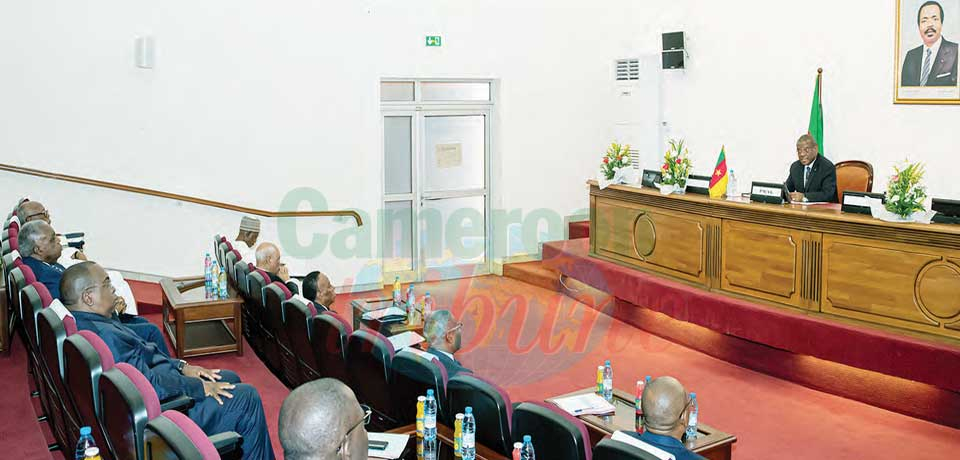
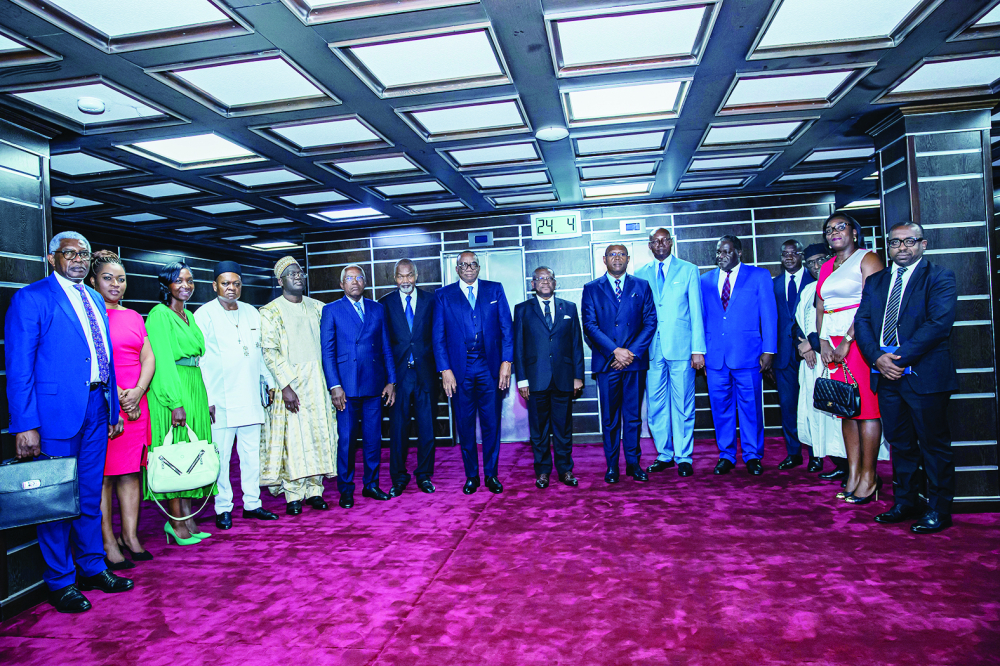
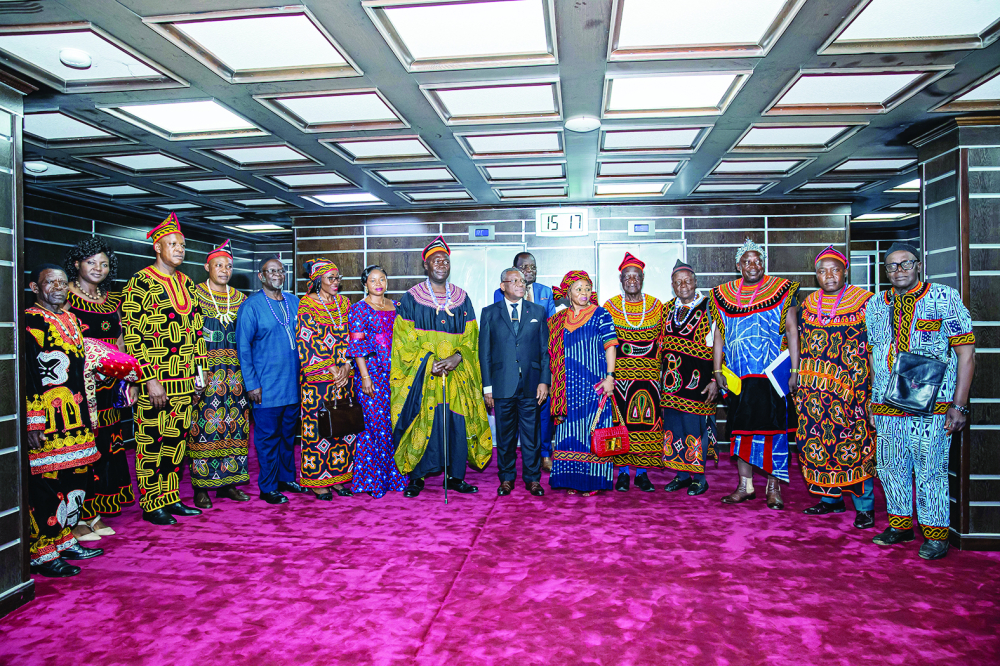
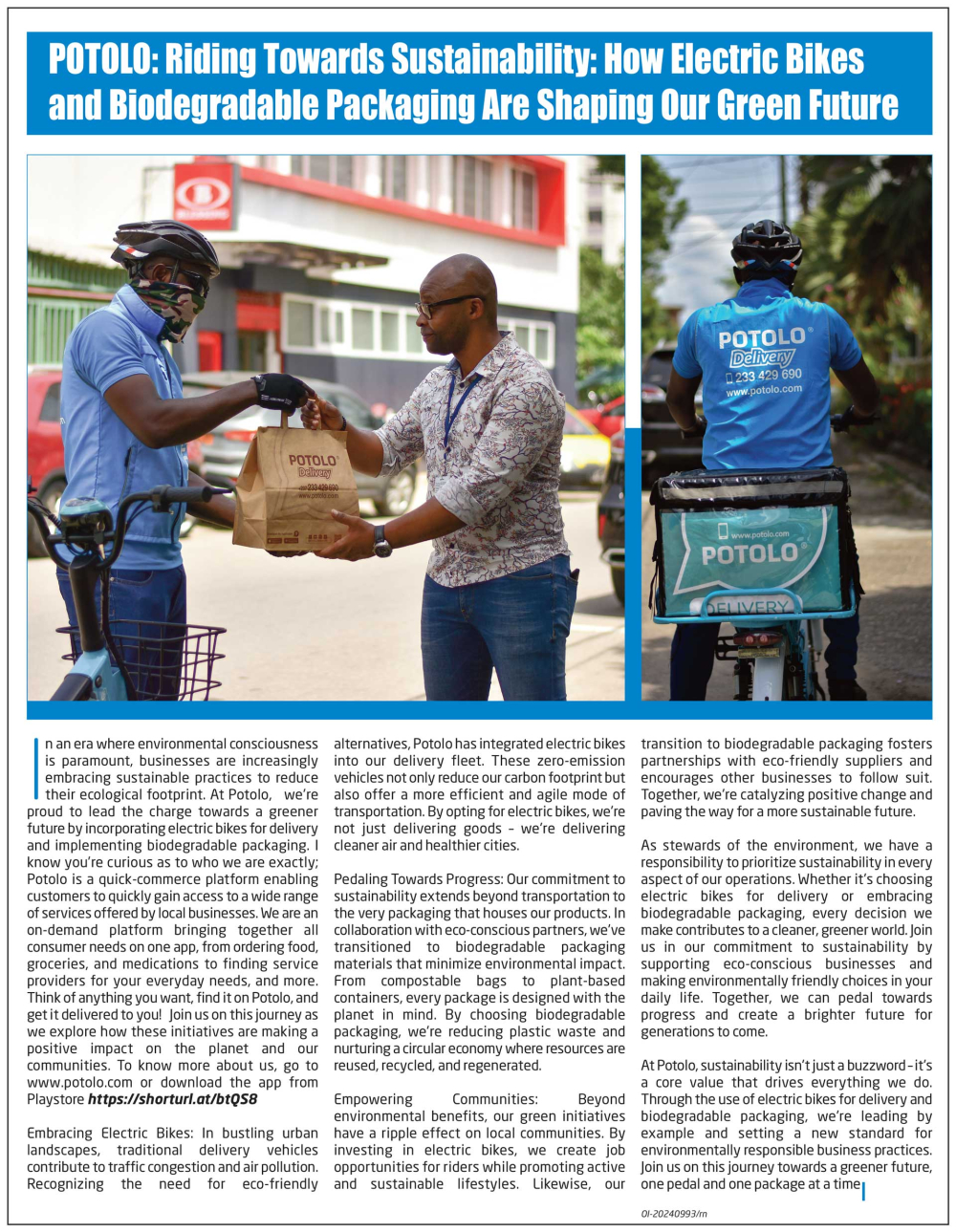
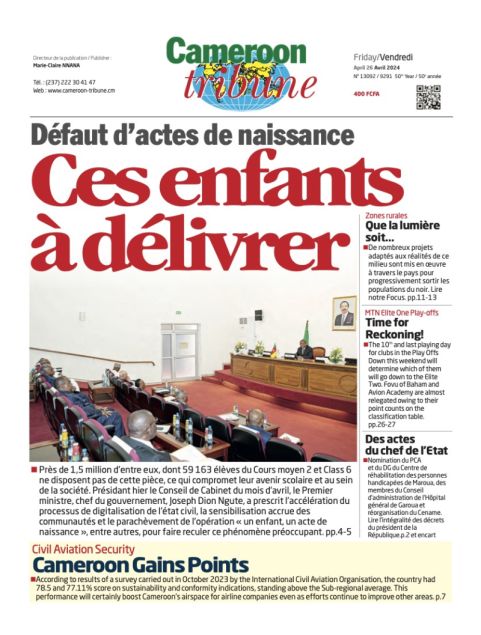




Commentaires